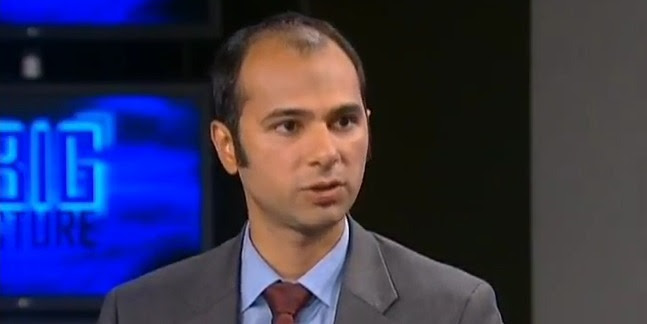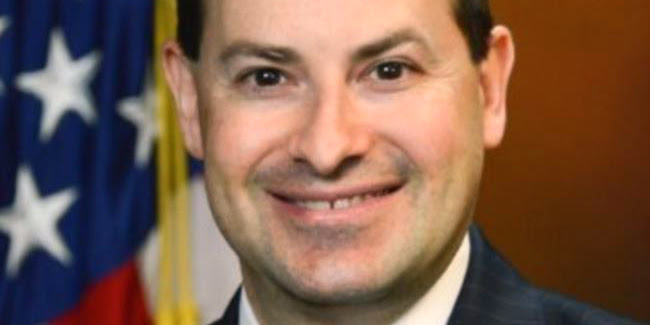The general idea is false that regulations somehow cost the economy; in fact, if anything is true, it’s the opposite. And we saw that with the Wall Street crash. Massive deregulation of Wall Street led to $14 to $22 trillion in lost wealth to this country. That was average Americans, mostly, bearing those losses—and losing their homes, OK? To be clear, regulation protects jobs, it protects our economy. —Amit Narang, Public Citizen
By Janine Jackson FAIR January 12, 2018
MP3 LinkEllen Schrecker: “What is happening today is the fruit of 40 years of a concerted right-wing conservative effort.”
Media for the people! Learn more about Rise Up Times and how to sustain
Mizue Aizeki: “The exclusion and expulsion of particular groups of people who have been deemed a threat, or un-American, has very much been part of the whole project of nation-building since the very beginning.”
Dan Goldberg: “What’s particularly troubling in that is not just that he held that for-profit corporations are people with legal rights, but that those rights trump the rights of everyday Americans.”
Raed Jarrar: “Iraq is not getting to a point where we’re opening a new page. What’s going on now is…a continuation of the destruction of the country.”
Jennifer Reisch: “The more women enter a profession or field, the lower the pay of that field becomes.”
Janine Jackson: Welcome to the Best of CounterSpin for 2017. I’m Janine Jackson. Each week, CounterSpin looks behind the headlines, asking what and who might be left out of the stories corporate media are telling, what questions are unasked, what alternatives unconsidered, and, at the end of the year, we revisit just a few of the conversations it’s been our pleasure to bring you. There were many, many important stories this year, events bewildering and significant in themselves, media coverage that shaped public understanding, activists and journalists and researchers who brought those stories home. We of course can only revisit a few now, but you can find all of them on FAIR.org.
You’re listening to the Best of CounterSpin 2017. CounterSpin is brought to you each week by the media watch group FAIR.
***

Ellen Schrecker: “What is happening today is the fruit of 40 years of a concerted right-wing conservative effort.”
Back in January, major media were roiling with tales about Russian hacking of the presidential election, and maybe Vermont’s electrical grid. Outlets like the Washington Post were promoting a report from an anonymous group on websites accused of purveying fake news in service of a Russian campaign to undermine US interests and a new website purported to serve as a watchlist on professors deemed guilty of advancing leftist propaganda in the classroom.
As many felt chilly echoes of the McCarthy era, CounterSpin spoke with Ellen Schrecker, retired professor of American history at Yeshiva University, and author of Many Are the Crimes: McCarthyism in America.
Ellen Schrecker: I think the main thing that we have to be careful about is not to confuse McCarthy with McCarthyism, because McCarthyism was a much broader movement, and, similarly, not to think that Trump is everything that is happening today. Because I think what is happening today is the fruit of 40 years of a concerted right-wing conservative effort to delegitimize a lot of what we would consider liberal/moderate orthodoxy, to delegitimize things like climate change, for example, which is pretty scary.
McCarthyism was the same way. What we saw in the 1950s was a very broad-based movement, designed ostensibly to eliminate all the influence of American Communism, and all the people involved with it, and the ideas and the organizations connected to it, to eliminate that from American life. These people were certainly innocent of crimes, they hadn’t done anything wrong. But politically, these were people on the left. These were people, many of them, probably the vast majority of them, the people who were called up by committees or blacklisted, had had some connection to the American Communist Party. And who were still willing to defy the status quo, the sort of standard Cold War consensus, enough to refuse to name names, to refuse to collaborate with this witch-hunting machine. And it was a machine.
And so what we saw was a drive against the left, and one that was incredibly successful. That’s the thing that we—we can’t just look at the 1950s and say, “Oh, McCarthy, you know, he was censured by the Senate, everything turned out fine.” Well, everything didn’t turn out fine. We ended up with a war in Vietnam, among other things. But also what had happened was that the American political spectrum narrowed, that a whole bunch of ideas and causes disappeared from American political discourse and American political life.
And I can give you examples, from the labor movement that stopped trying to organize white-collar workers, for example. Or from the civil rights movement, which in the late 1940s had a very strong economic justice component, and that was completely wiped out, largely because many of the people who were pushing this broader notion of what civil rights was did have some Communist connections, were concerned about issues of economic class, and were simply booted out of the civil rights movement, the mainstream civil rights movement, which was trying to protect itself against some very ferocious red-baiting.
So what we see as a result of McCarthyism is a much narrower range of political ideas that impoverished the American political scene and put a stop to creating a much stronger safety net, for example.
In other words, the damage from McCarthyism is not just people losing their jobs or going to jail, but all of the movements, all of the projects, all of the books and ideas that weren’t out there in American life. And that’s the kind of thing that’s very scary, because we’ll never know.
***

Amit Narang: “President Trump has made claims that he wants to get rid of 75 percent of existing regulations—without specifying, of course, which ones those are.” (image: RT)
Janine Jackson: The Trump administration recently revised the rules for public school lunches, freeing schools from the scourge of Obama Era regulation requiring they make plans to reduce salt, offer whole grains and serve plain instead of flavored milk. It’s sick, but it’s no surprise. Early in the year, the White House issued an executive order that for every one new regulation, two had to be repealed. We talked about such cartoonish ideas with Amit Narang, regulatory policy advocate at Public Citizen’s Congress Watch. I asked about a claim from then–press secretary Sean Spicer that the negative response to the executive order was based on “wildly inaccurate” presumptions about its impact.
Amit Narang: That claim by Mr. Spicer is laughable. Essentially what he’s saying is that, oh no, this executive order is not going to operate the way we intend it to operate, which is to make it almost impossible to regulate in areas that are key to protecting the public’s health, safety; making sure Wall Street is accountable to the public and not acting recklessly; environmental protections.
Media for the people! Learn more about Rise Up Times and how to sustain
People Supported News.
Follow RiseUpTimes on Twitter RiseUpTimes @touchpeace
And let’s be clear, President Trump has made claims that he wants to get rid of 75 percent of existing regulations—without specifying, of course, which ones those are—but he can’t do that without touching bedrock, fundamental protections that the public takes for granted, frankly, and that Congress has produced legislation to protect, that is some of the most popular legislation that Congress has ever produced, stuff like the Clean Water Act, the Clean Air Act, the Dodd-Frank Act.
The general idea is false that regulations somehow cost the economy; in fact, if anything is true, it’s the opposite. And we saw that with the Wall Street crash. Massive deregulation of Wall Street led to $14 to $22 trillion in lost wealth to this country. That was average Americans, mostly, bearing those losses—and losing their homes, OK? To be clear, regulation protects jobs, it protects our economy.
Now, of course, big businesses and corporate America and conservatives that are ideologically opposed to regulation want to paint this picture, which is completely a false picture, with respect to the presumption underlying this executive order, that there are tons of old regulations that serve no purpose, that are all dusty and laying around and can be easily repealed, and of course, since they serve no purpose, they must be costing corporate America a lot of money—that’s a little bit of sarcasm; I don’t know how they reconcile that—but even that presumption is false.
Why? Because President Obama initiated in 2011 what’s called regulatory Retrospective Review process, where he asked agencies to look at the rules that they had on their books and see if, in fact, there were any of these old regulations that really weren’t serving any purpose, that would be able to be repealed without harming the public. And they did find some. They didn’t find that many, and frankly, they didn’t come anywhere close to pleasing corporate America with this initiative. But in any case, they did find some, and they did repeal them.
And this is a real problem for the Trump administration’s implementation of this executive order. Because under the executive order, in order for agencies to put out new regulations—let’s say, updated lead standards in drinking water, which is not a hypothetical; the EPA’s supposed to do that in 2017—in order for the EPA to do that, they have to find a regulation that doesn’t serve any purpose, that’s just sitting on the books, that’s costing the energy industry money, to get rid of. Well, if those regulations have already been identified by the Obama administration and have already been repealed, what are they going to turn to?
Then we start talking about regulations that absolutely still serve a purpose, that still protect the public—say, getting mercury out of the water, essentially, by requiring power plants to not spew mercury out when they spew out emissions that eventually fall into the water that then make its way into the food that we eat. Are we going to sacrifice a mercury regulation in order to then regulate lead in drinking water?
***

Mizue Aizeki: “The exclusion and expulsion of particular groups of people who have been deemed a threat, or un-American, has very much been part of the whole project of nation-building since the very beginning.”
Janine Jackson: The human harms of the Trump White House accrue by the day but one of the first impacts was felt by immigrant communities, already targeted by the previous administration. As policies were pushed expanding the category of people prioritized for deportation, some media got caught up in efforts to distinguish “good” and “bad” immigrants. The powerful, poorly understood frame of criminality so shaped the conversation that the statement from our guest that “human beings that happen to be noncitizens have fundamental rights, too,” sounds radical. Mizue Aizeki is deputy director of the Immigrant Defense Project.
Mizue Aizeki: Just to put it a little bit into context, I think the broader problem is, especially over the past 20 years, that we have experienced the rapid development of the world’s largest system to imprison and exile immigrants. And the heart of the system has been this government-constructed state of emergency that really relies on racialized fear, and has conscripted the entire criminal legal system, from the police to the courts to the prisons to probation, and eternally brands people as so-called criminals. So in many ways, that’s the heart of criminalization, right, where a system of criminalization basically expands and legitimizes surveillance and regulation and punishment of these certain peoples and communities, while at the same time determining that they don’t deserve any protection.
I think in terms of the particular context of immigration, the exclusion and expulsion of particular groups of people who have been deemed a threat, or un-American, has very much been part of the whole project of nation-building since the very beginning, right, where certain bodies represented an imminent or inherent threat, from Native Americans to formerly enslaved people, and fast forward to the current day, where the target is people from Muslim countries, or criminalized immigrants.
I think where we really saw convergence of this is in the 1990s, where a very highly punitive frame was applied to so many aspects of US policy, whether in welfare or the crime bill, and in the case of immigrants, these particularly harsh immigration policies, which rapidly expanded the number of criminal offenses that would subject someone to deportation, but also made deportation a mandatory minimum in the vast majority of cases. It’s at this particular moment that we’re living in, the convergence of the war on the poor and then on immigrants, and overall on criminalized people of color, converged with these themes of personal responsibility, law and order, and the rule of law, that we’ve been fighting against since the 1990s.
***

Dan Goldberg: “What’s particularly troubling in that is not just that he held that for-profit corporations are people with legal rights, but that those rights trump the rights of everyday Americans.”
Janine Jackson: Corporate media didn’t seem to have a lot of hard questions for Supreme Court candidate, now Justice, Neil Gorsuch. Even as he danced around questions in his hearing, the New York Times announced he’d probably be confirmed. The Chicago Tribune said he earned it. USA Today reported he “sailed through.” Dan Goldberg, legal director at the group Alliance for Justice, didn’t share the sanguinity. We talked about Gorsuch’s record of, for one thing, holding that corporations are people.
Dan Goldberg: He was on the original Hobby Lobby case. This is the case regarding whether for-profit corporations have a right, under healthcare law, to deny critical reproductive healthcare and access to contraceptives to their women employees. And what’s particularly troubling in that is not just that he held that for-profit corporations are people with legal rights, but that those rights trump the rights of everyday Americans. Nowhere in his decision in Hobby Lobby does he talk about even the need to balance the interests of the women who rely on employer-sponsored healthcare. It was a callous decision, it was not legally right, and it just demonstrates how results-oriented he is.
***
Raed Jarrar: “Iraq is not getting to a point where we’re opening a new page. What’s going on now is…a continuation of the destruction of the country.”
Janine Jackson: When more than 200 men, women and children were killed in a US airstrike in Mosul in northern Iraq last spring, the Los Angeles Times offered counsel to US readers, explaining:
The death toll is a tragedy, but it’s also a grim sign that the long offensive against Islamic State begun by President Obama in 2014 is moving rapidly towards success. And for that President Trump deserves some credit.
CounterSpin spoke with Raed Jarrar, government relations manager at the American Friends Service Committee. I asked him how we disrupt the narrative that says that the mass slaughter of Iraqi civilians is not just unavoidable, but somehow a sign that we’re getting closer to peace.
Raed Jarrar: I would intercede with two points. The first one is that the level of civilian casualties due to US airstrikes, and to those forces supported and aided by the US, might actually reach to the point of war crimes. So we’re not just talking about a tactical difference—you know, we’re offending some groups; the US apparently has changed its rules of engagement in the last few months, and this came after promises by President Trump to take the gloves off against ISIS. And he said that we have been “restrained,” we have to take it all the way. So there is an intention there to start bombing more, and to disregard civilian lives. And under international law, these principles of proportionality and distinction are not optional; it’s not an issue that a president can decide to tweak for political reasons.
So that’s my first point, is that the US might have been engaged in war crimes in the last few weeks because of the unprecedented level of civilian casualties in Syria and in Iraq, where hundreds of civilians are being killed by airstrikes by the US, in what seems to be a new pattern of US engagement.
My second point is that I completely disagree with the premise of what’s going on in Mosul. If you were to listen to mainstream media in the US, or to the US government, what’s going on is supposedly a liberation of Mosul. That’s why any price should be given for this liberation of Mosul from this pure evil group, because at the end of the day, supposedly, we’re getting all of these Iraqi civilians liberated.
And I disagree with this premise, because what’s going on in Mosul is nothing more than a handover between one sectarian and violent militia, called ISIS, to another sectarian and violent militia, called the Iraqi government. Civilians in Mosul are not being liberated; in some cases there is worse treatment by the Iraqi government and militias affiliated with the Iraqi government. Human Rights Watch issued a few reports in the last few years. One of them is called “After Liberation Came Destruction,” and in that report, Human Rights Watch documents how Iraqi forces, aided and funded and trained by the US, committed systemic war crimes in areas that they took back from ISIS, including ethnic cleansing and rape and torture and extrajudicial killing. We’re talking about the same level of violations committed by ISIS.
So there is no liberation going on there. Iraq is not getting to a point where we’re opening a new page. What’s going on now is exactly another step, a continuation of the destruction of the country.
It’s very similar to what happened a decade ago around Fallujah, when the US told us that we have to go bomb Fallujah, because it was controlled by Al Qaeda, by pure evil there, and everything will be OK after that. Nothing became OK after that. There is more death and more destruction and more extremism.
So that is my second point. My second point is that I challenge this narrative of liberation, and I doubt that what’s going on in Mosul is a change in course. It’s actually another example of how the US and its allies have been operating in Iraq for the last 15 years or so.
***

Jennifer Reisch: “The more women enter a profession or field, the lower the pay of that field becomes.”
Janine Jackson: Before the so-called “Weinstein moment” and the reviving of the #MeToo campaign, started by Philadelphia social activist Tarana Burke, CounterSpintalked about grounding our understanding of harassment in an economic context with Jennifer Reisch, legal director at the group Equal Rights Advocates. She underscored that real equal opportunity and employment go beyond the paycheck.
Jennifer Reisch: I think there’s just a widespread misperception and misunderstanding of what the gender pay gap is really about, and a failure to recognize that it is the result, not only of continuing discrimination and the results of implicit and explicit bias against women in the workplace, but also the result of a lot of mechanisms and things going on in the labor market that result in women being underpaid. And they are pernicious, and they are often part of the way we see things as just being the way they are.
So occupational gender segregation, for example, is a big contributor to the gender wage gap, and that’s not the result of any specific employer necessarily making a discriminatory decision. It’s really about the result of many, many years, and for many different reasons, women, first of all, ending up in jobs that pay less and, on the flip side, the jobs where women work being the lowest-paid jobs in our economy.
And so we both undervalue the work that women do, and in fact we can see that when women enter a profession, the more women enter a profession or field, the lower the pay of that field becomes. So there is clearly still a long way we have to go to get to a place where women and men are truly experiencing equal opportunity in employment, and where they’re being paid equally for doing substantially equal work.
The other thing is that, just because something is illegal doesn’t mean it doesn’t happen. That’s sort of the most obvious thing as well, is that we see with sexual harassment, which has been considered an unlawful form of sex discrimination since the early ’80s, and was outlawed really by Title VII, which was passed in 1964, it is still the No. 1 reason why people call Equal Rights Advocates for help on our toll-free help line, and it is one of the most common reasons why people file discrimination charges, is based on sexual harassment-related issues. Just because something has been declared unlawful certainly doesn’t mean that it’s been eliminated. In fact, we’ve seen, I think, a real upswing in a lot of these issues coming to the fore over the last few months.
JJ: Let’s move on to that. In his defense of Fox head Roger Ailes, with his more than 20 allegations of sexual harassment, Donald Trump said that his daughter Ivanka “would find another career or find another company” if she faced any harassment. And his son Eric Trump said Ivanka “wouldn’t allow herself to be subjected” to harassment.
Now, besides ignorant, that’s revelatory in the implied assumption that a woman should and can just quit a job where she’s harassed. And it points to harassment as an economic concern, but that’s rarely how it’s presented.
JR: You’re absolutely right, Janine, and it is an economic concern. The thing that really appalls me about those comments, too, is that of course it places the blame for harassing conduct on the women who are subjected to it, and puts the onus of change on individual women, as opposed to on the institutions and employers and individuals that are perpetrating the harassment, and creating cultures inside those environments where men are given a free pass to harass women, and where women are taught that tolerating that harassment is the price of a paycheck.
***





